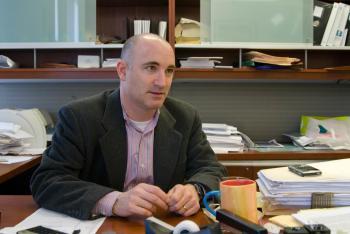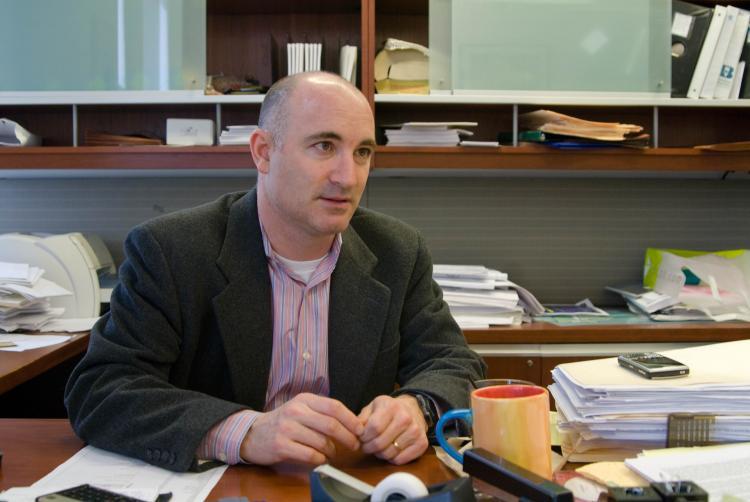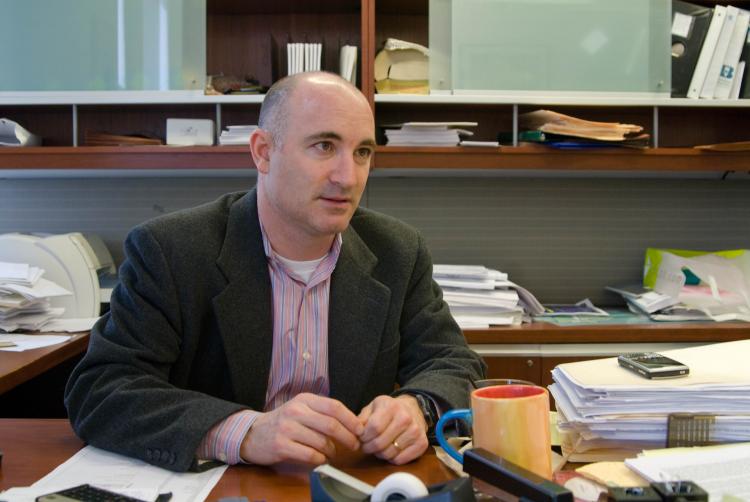NEW YORK—Before there was today’s Brooklyn, with its thriving cultural scene and the blossoming crop of new residences, there was the Brooklyn Real Estate Roundtable. Through debate and luncheons, the Roundtable concentrated the minds that shape Brooklyn as we know it. Its chairman is David Kramer.
Though the son of a Brooklynite, Kramer lived on Manhattan’s Upper West Side in his youth and rarely ventured to the other borough.
“There was much more of a divide between Manhattan and Brooklyn when I was growing up 30 years ago,” he said. “Now it’s much more of a seamless transition from Manhattan to Brooklyn.”
The elder Kramer was a city attorney and his wife a social worker. Their son, naturally, was imbued with an interest in politics and civic life, which led him to get involved in homeless policy. So when he graduated from college in the late ‘80s in the middle of the homeless crisis, he began working for the Skidrow Housing Trust, a non-profit involved in affordable housing.
“That’s where I learned to be a housing developer and it was a good way to enter the field,” Kramer said. It was perfect timing. In the early ‘90s, government on all levels issued housing tax credits to create affordable housing in response to the homeless crisis. “It was a good time to jump into the non-profit sector which was just growing by leaps and bounds,” Kramer said.
And as the bottom rung of society was lifted, other sectors began to flourish as well with the inpour of young people. “Brooklyn has much more of a creative class now—designers, freelancers, artists; there are so many more Brooklyn neighborhoods that have creative,” Kramer said.
The Roundtable is Born
The growth of Brooklyn as a trendy place to live met with the need for a forum for developers. One of Kramer’s friends, a board member on the Brooklyn Historical Society, enlisted his help to raise money.
That’s when it hit him that Brooklyn real estate needed a similar organization. “I thought that maybe there’s enough going on in Brooklyn where you can have a Brooklyn real estate organization,” he said. “So I put together a steering committee of about 10 developers.”
His vision for the roundtable departed from that of conventional real estate meetings, which tend to feature powerpoint presentations and a few speakers. Instead, he started a quarterly luncheon series that included discussion with four or five industry and policy professionals.
“So you get a sense from this program that we get very high-powered, active people. We say no speeches, no powerpoints. We’re just going to have a conversation,” Kramer said.
Past speakers at the luncheons include City Council Speaker Christine Quinn, Don Capoccia of BFC Partners, Greg O‘Connell, Chief Executive of O’Connell Organization, and developers that operate in Brooklyn.
One ticket to a single Roundtable luncheon costs $300 and all proceeds go to the Historical Society. “Every year we’ve been sold out,” Kramer said. Last year they grossed over $140,000.
The second of the third 2009 luncheon will be held on Tuesday, May 5 at the Brooklyn Historical Society. Tickets are available on www.nycharities.org.







